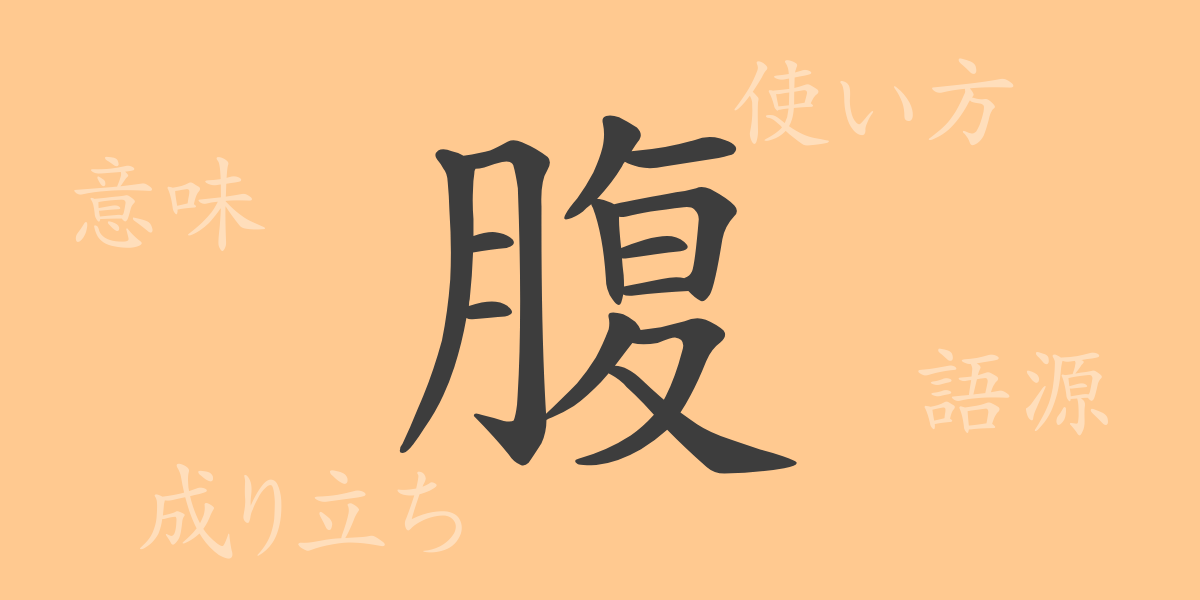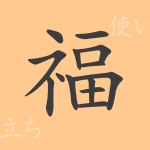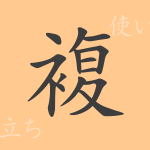In the Japanese language, there are countless kanji characters used to express emotions, physical states, human relationships, and social situations. The kanji character “腹” (はら, hara) is not only used to refer to a part of the body but also has a very diverse range of meanings, expressing people’s emotions, intentions, and even personalities. In this article, we will delve into the history and depth of meaning embedded in the character “腹” (はら, hara) and explore its fascinating nuances.
Origin of “腹” (はら, hara)
The character “腹” (はら, hara) has its origins in ancient Chinese oracle bone script. This kanji was created to represent the part of the body that encases the internal organs. Originally, it combined the radical for meat with the character “古” (こ, ko), which signifies “inside.” The character “古” (こ, ko) forms the shape of an enclosing structure, thus creating the kanji “腹” (はら, hara).
Meaning and Usage of “腹” (はら, hara)
Directly, the character “腹” (はら, hara) refers to a part of the human body, specifically the “stomach.” However, it also has a wide range of uses to express emotions such as “inner feelings,” “will,” “satisfaction,” and “anger.” For example, “腹を決める” (はらをきめる, hara wo kimeru) means to make a firm decision, and “腹が立つ” (はらがたつ, hara ga tatsu) means to get angry.
Reading, Stroke Count, and Radical of “腹” (はら, hara)
The readings for the character “腹” (はら, hara) are “フク” (ふく, fuku) in on’yomi (音読み, Chinese reading) and “はら” (はら, hara) in kun’yomi (訓読み, Japanese reading). It consists of a total of 13 strokes. The radical is “肉” (にくづき, nikuzuki), categorizing it among kanji related to meat.
- Readings: On’yomi “フク” (ふく, fuku), Kun’yomi “はら” (はら, hara)
- Stroke Count: 13 strokes
- Radical: 肉 (にくづき, nikuzuki)
Idioms, Proverbs, and Phrases Using “腹” (はら, hara)
Here are some idioms, proverbs, and phrases that include the character “腹” (はら, hara):
- “腹を割って話す” (はらをわってはなす, hara wo watte hanasu) – To talk openly and honestly without hiding anything.
- “腹が据わる” (はらがすわる, hara ga suwaru) – To be calm and composed, not easily shaken.
- “腹八分目” (はらはちぶんめ, hara hachibunme) – The idea that it is best to eat until you are 80% full.
- “立腹” (りっぷく, rippuku) – To feel angry.
- “腹心” (ふくしん, fukushin) – A very close and trusted person, someone you can rely on from the bottom of your heart.
Conclusion on “腹” (はら, hara)
As demonstrated, the kanji “腹” (はら, hara) is used not only to refer to a part of the body but also to express various aspects of human psychology, emotions, and actions. As one of the commonly used kanji in Japanese, understanding its rich meanings and applications leads to a deeper comprehension of the Japanese language. From daily conversations to business scenarios and literary works, the character “腹” (はら, hara) enriches our expressions. Embrace its diversity and depth in your daily communication.

























